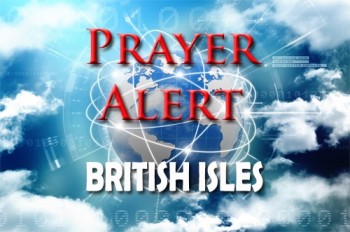Displaying items by tag: extreme weather
Beijing: 30 dead and 80,000 evacuated after flooding
At least 30 people have died and over 80,000 have been evacuated following devastating rainstorms and floods in Beijing and surrounding regions. Chinese authorities confirmed the deaths, with 21 caused by drowning - many in underground spaces that filled rapidly - and others from electrocution and building collapses. The Miyun District northeast of Beijing recorded nearly 543mm of rain. The storms have severely impacted infrastructure, cutting power to 136 villages and damaging 31 roads, complicating rescue and relief efforts. President Xi Jinping and Premier Li Qiang have urged “all-out efforts” to rescue the missing, resettle the displaced, and minimise further casualties. An orange alert - the second-highest emergency level - remains in effect as more rain is forecast. The deluge has affected several provinces including Hebei, Jilin, and Shandong. China’s National Development and Reform Commission has allocated £21 million in emergency funding to support relief operations. With fears of additional flooding and landslides, authorities are on high alert, monitoring rivers, reservoirs, and urban drainage systems to prevent further tragedy. Relief efforts continue as the region battles ongoing extreme weather.
Europe: severe heatwave, record temperatures, wildfires
A severe early-summer heatwave is scorching much of Europe, triggering wildfires, evacuations, and health alerts across multiple countries. In Turkey, over 50,000 people have been evacuated due to wildfires, especially near Izmir. France has faced peak temperatures of 40°C, with wildfires prompting evacuations. Spain is on track for its hottest June ever, with Seville reaching 42°C. Italy issued red heat alerts for 16 cities and may restrict working outdoors. Germany is also issuing warnings, urging water conservation while facing disrupted river shipping because the water level of the Rhine has dropped. UN secretary-general António Guterres has commented, ‘Extreme heat is no longer a rare event – it has become the new normal.’ Heatwaves are already the world’s deadliest weather hazard, killing nearly half a million people annually, surpassing the toll from floods, hurricanes, and earthquakes combined.
India: devastating floods
Flooding and landslides caused by relentless rains have devastated northeastern India, with at least 44 people confirmed dead. Assam state has seen twelve deaths from flooding and five from landslides, with nearly 1,500 villages and over 617,000 people impacted. In Arunachal Pradesh, twelve deaths have been reported, while Sikkim has faced deadly landslides, killing two soldiers and a porter. The Indian Army is conducting tireless search and rescue operations in treacherous conditions, seeking six missing individuals amid unstable terrain and high altitudes. Other northeastern states are also reporting casualties as the disaster unfolds. Narendra Modi has assured support for affected regions, contacting local officials and promising relief. The scale of the disaster highlights the vulnerability of remote areas to extreme weather and the immense burden placed on rescue personnel. As the death toll rises, national and regional leaders face growing pressure to manage the crisis and protect vulnerable communities.
Japan: worst wildfire in fifty years
Japan is battling its worst wildfire in fifty years, with over four thousand residents evacuated and one confirmed dead. The blaze, which started near the northern town of Ofunato, has consumed around 2,600 hectares. It follows Japan’s hottest recorded summer, exacerbated by climate change and low rainfall. Firefighters and military helicopters are struggling to contain the flames, with no sign of control. Nearly two thousand firefighters, many from Tokyo, are on the scene. The Iwate region, previously devastated by the 2011 tsunami, now faces further hardship. Authorities continue to assess the damage, which includes at least eighty buildings. While wildfires in Japan have declined since the 1970s, the country still saw 1,300 in 2023, mostly during the months of February to April when the air dries and winds pick up.
Indonesia: severe flooding in and around Jakarta
Severe flooding in Jakarta and surrounding areas has displaced thousands and caused significant property damage. Torrential rains since 3 March have raised water levels by up to three metres, submerging over a thousand homes and vehicles. The capital’s governor has declared a heightened alert, ordering water pumps and cloud seeding operations to reduce rainfall. Bekasi has been hit hardest, with floodwaters inundating a hospital, forcing patient evacuations and causing power cuts. Rescue teams are using boats to assist trapped residents. This is Jakarta’s worst flooding since 2020, when record rains claimed sixty lives. Authorities are closely monitoring the situation and coordinating relief efforts, including evacuations, food distribution, and emergency services. The weather agency has warned that heavy rains may persist until 11 March, potentially worsening conditions. Residents are urged to remain vigilant and adhere to guidance from local authorities.
Manchester: 1,300+ evacuated because of flooding
At least 1,300 people were evacuated across Greater Manchester on New Year’s Day following severe flooding caused by heavy rain. A major incident was declared as many areas faced widespread damage. Rivers, including the Mersey and Tame, burst their banks, submerging roads, homes, and businesses. Emergency services coordinated efforts to rescue residents. Boats were deployed to evacuate hundreds, including 500 from a migrant hotel in Didsbury and 400 from an apartment complex in Stockport. Power cuts affecting 2,800 properties were reported. Emergency shelters were set up in affected areas, while videos showed dramatic rescues and submerged vehicles. Despite the chaos, no serious injuries were reported. Chief superintendent Colette Rose praised public cooperation and emergency services for their swift response. The flooding has eased in some areas, but authorities continue to monitor the situation and provide support to displaced residents. See
Mayotte: aftermath of Cyclone Chido
France has intensified relief efforts in Mayotte, with 120 tonnes of food scheduled for distribution. The Indian Ocean archipelago, France's poorest territory, has been under a curfew due to looting and lawlessness following Cyclone Chido’s destructive landfall. Thousands of residents in the capital Mamoudzou are working to repair their homes, while entire communities in the shantytowns have been destroyed. Although the cyclone, the most powerful in ninety years, has led to numerous deaths, with hundreds feared dead, only 22 fatalities have been confirmed due to the inaccessibility of many areas. The situation is further complicated by uncertainty around the population size, with many undocumented migrants from Comoros and Madagascar. Health experts say they are bracing for a surge of disease as dead bodies lie unrecovered and people struggle to access clean drinking water.
Spain: mud thrown at king, fury directed at politicians
Following Spain’s deadliest natural disaster in recent memory, a visit by King Felipe VI and Queen Letizia to Valencia became the target of public outrage, with protesters hurling mud at them. The recent devastating floods claimed at least 217 lives, with the toll expected to rise. When the royal couple appeared, alongside Prime Minister Pedro Sánchez and other leaders, many locals expressed their fury at what they saw as inadequate warnings and slow government response. Protesters shouted ‘Murderers!’ and ‘Get out!’ at officials, blaming them for the disaster’s aftermath, and there were several clashes with police. Queen Letizia burst into tears after speaking to several grieving people. One commentator noted that the crowd's anger was directed at the politicians, not the royal family. Public resentment over the government's handling of the floods has intensified. One week after the floods struck, many people still did not have drinking water.
Spain: at least 95 dead after flash floods
At least 95 people have lost their lives in south-eastern Spain after relentless rains triggered flash floods. In one town an unprecedented year’s worth of rainfall (491 mm) occurred within just eight hours. Floodwaters wrought havoc across the region, toppling bridges, sweeping cars through streets, and leaving many people clinging to trees to survive. Over a thousand troops have been dispatched for rescue operations as numerous individuals remain trapped or unaccounted for. King Felipe VI expressed deep condolences, while emergency services, overwhelmed by the crisis, have struggled to respond to hundreds of distress calls. Questions have arisen over poor forecasting and delayed flood warnings, which some believed left them vulnerable on roads and low-lying homes: see https://www.bbc.com/news/articles/cwyx75ppr79 Flights, trains, and schools have been suspended. Of many contributory factors, a warming atmosphere caused by climate change makes extreme rainfall more likely. Temperatures will keep rising unless governments around the world make steep cuts to emissions: see also the World article on the UN and climate change.
Brazil: ‘If these fires continue, we indigenous people will die’
The Amazon is experiencing a huge environmental crisis; fires have ravaged over 62,000 square kilometres of forest, exacerbated by Brazil’s most severe drought. The fires, usually deliberately started by loggers, miners, and farmers seeking land, are decimating the region. Raimundinha, who leads an indigenous firefighting brigade, has warned: ‘If these fires continue, we indigenous people will die’. Respiratory issues are already affecting her family, and the fires are increasingly encroaching on lands which in theory are protected by the government. The drought has not only fuelled these fires but also drained rivers, making daily life for some nearly impossible. With dwindling resources and rising temperatures, the situation in the Amazon highlights the fragile balance between human activity and environmental conservation, as well as the catastrophic effects of climate change.









